Josef Schelb: Orchestral Music, Volume Two: Three Concertos
Josef Schelb (1894–1977) is one of the better-kept secrets of German music. His output was substantial: he lost most of his early music in a bombing raid in 1942 but, as if to make up for lost time, wrote some 150 more works after that, in the tonally liberated, quasi-Expressionist contrapuntal tradition of Hindemith and Hartmann; Bartók was an important influence, too. These three concertos show him at his most engaging: the contrapuntal craftsmanship that drives the music forward is deployed with a light and nimble touch, and passages of touching delicacy contrast with others where a lively sense of humour comes bubbling up to the surface.
Tatjana Blome, piano (Tracks 1 – 3)
Sarina Zickgraf, viola (Tracks 4 – 6)
Dominik Wollenweber, cor anglais (Tracks 7 – 9)
Kammersymphonie Berlin
Jürgen Bruns, conductor
Listen To This Recording:
-
Concerto for Piano and String Orchestra (1949)*
- I Straff bewegt
- II Ruhige Achtel
- III Sehr lebhaft
- I Allegro moderato
- II Andante tranquillo
- III Molto vivace
- I Allegretto
- II Lento
- III Vivace
Concerto for Viola and String Orchestra (1956)*
Concerto for Cor Anglais and String Orchestra (1970)
* FIRST RECORDINGS
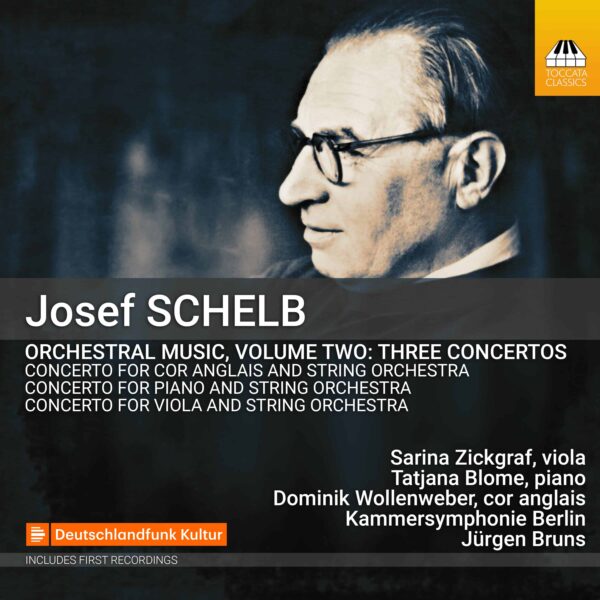
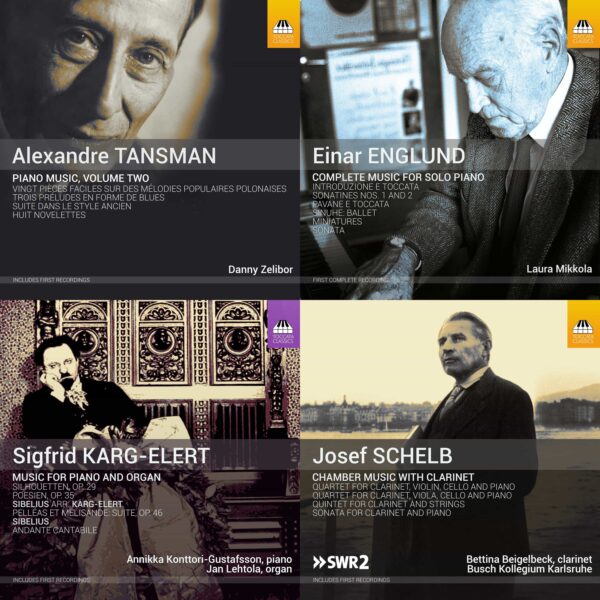
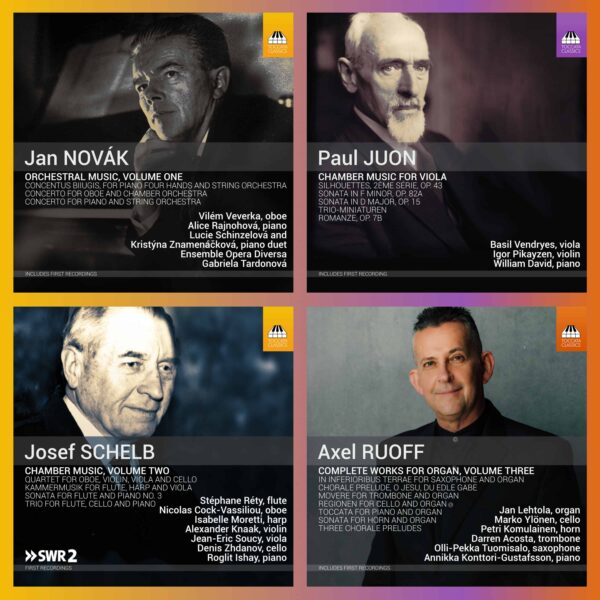
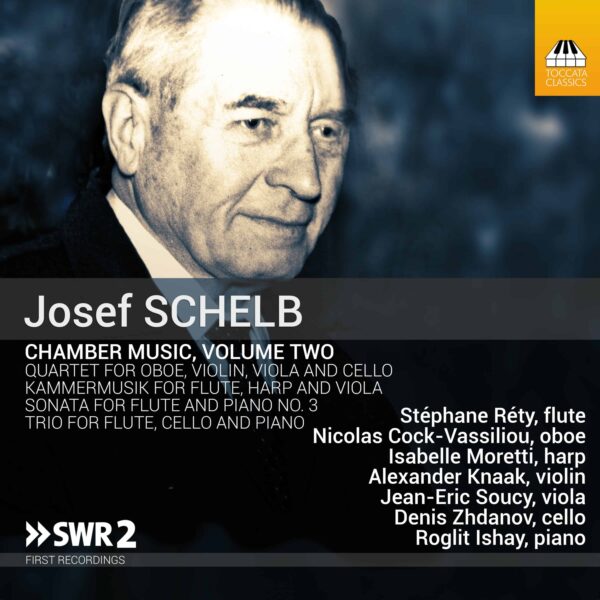
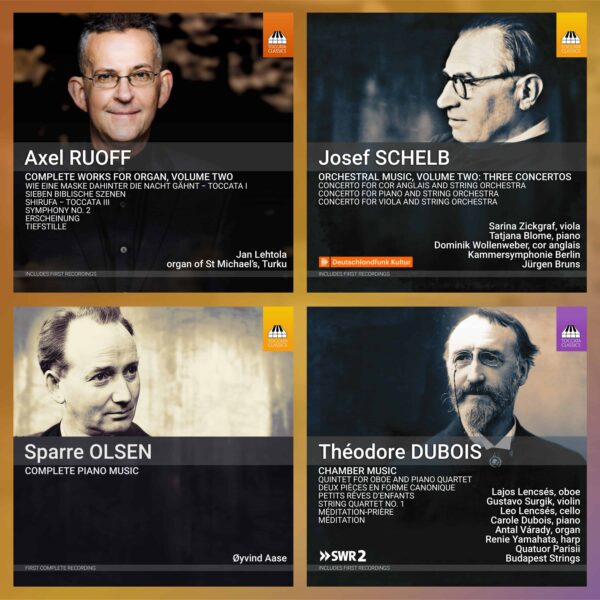
MusicWeb International :
‘[…] all the soloists are admirable, as is conductor Jürgen Bruns, who delineates orchestral strands very adeptly and is clearly as in tune with the lyricism as well as the more harmonically advanced nature of Schelb’s compositional arsenal.’
—Jonathan Woolf, MusicWeb International
WTJU :
‘The Kammersymphonie Berlin seems the ideal ensemble for this music. Schelb’s music has a stripped-down sound to it. The ensemble’s tightly focused sound adds intensity to the stripped-down nature of Schelb’s works. […]
Pianist Tatjana Blome performs [the piano concerto] with authority and energy. […]
Violist Sarina Zickgraf delivers an engaging performance [of the viola concerto] that sounds organic to that of the orchestra. […]
Dominik Wollenbweber plays the cor anglais with supple lyricism. Even the most angular of Schelb’s melodies have a smoothness to them that softens their sharp edges.’
—Ralph Graves, WTJU